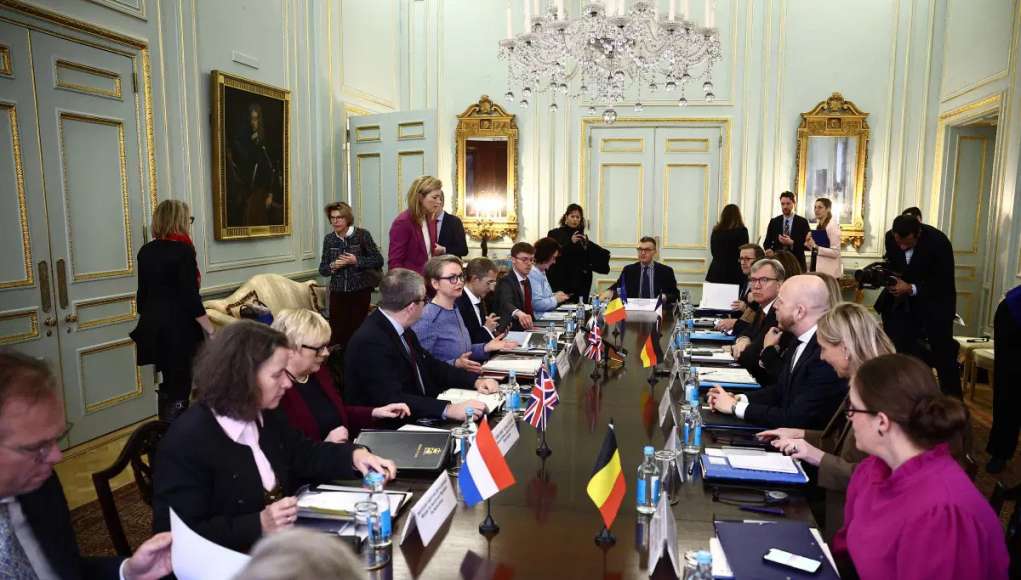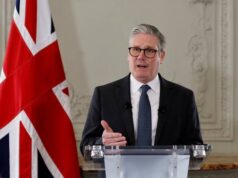A joint action plan to combat migrant smuggling gangs was signed by Britain and Germany on Tuesday as European interior and migration ministers convened in London to strengthen collaboration.
Belgium’s Nicole de Moor and Annelies Verlinden, France’s Bruno Retailleau, Germany’s Nancy Faeser, and Dutch minister Marjolein Faber all joined UK Home Secretary Yvette Cooper and Britain’s border security commander Martin Hewitt for talks.
Ex-police chief Hewitt was appointed by British Prime Minister Keir Starmer in September to help deliver on his pre-election pledge to “smash” the people smuggling gangs.
READ ALSO: South Korea Restricts More Officials From Traveling Abroad
A growing issue among European nations, increasing irregular migration was also a major theme during the UK’s July election, which swept Starmer’s Labour Party to power.
So far this year, nearly 34,000 undocumented migrants have reached British shores across the English Channel, arriving on dangerous flimsy vessels. At least 70 people have died, making 2024 the deadliest year on record.
Net legal migration is also running at historically high levels, estimated at 728,000 for the year to June 2024.
Ahead of Tuesday’s talks, the UK’s Home Office said Germany had pledged to tighten its law to make it easier to prosecute people smugglers enabling small boat crossings from Northern France. Berlin did not immediately confirm that information.
Germany’s ambassador to London, Miguel Berger, said many of the people smuggling networks bringing people from Belarus through Poland to Germany were also sending migrants across the Channel.
He said that as a result of Brexit, the UK had withdrawn from EU accords on third-country immigration, and the London-Berlin agreement would “see how we can again strengthen our cooperation.”
Germany’s Faeser said the two countries were focused on ending “the inhumane activities of criminal migrant smuggling organizations.”
“By cramming people into inflatable boats under threats of violence and sending them across the Channel, these organisations put human lives at risk.”
– ‘Unscrupulous’ –
Many of the crossings were “planned in Germany,” and the deal would help to counter “this unscrupulous business with even more resolve,” she added.
The European ministers’ talks in London are part of the so-called Calais Group.
They will agree on “enhanced efforts to break the business model of people smuggling gangs and ensure that those responsible for this dangerous trade are brought to justice,” the Home Office said.
Representatives of the European Commission and the Frontex and Europol agencies are also participating.
In particular, the parties will seek to improve intelligence sharing to disrupt illicit financial flows and facilitate the prosecution of smugglers in Europe.
The UK-German joint plan would strengthen the “operational capabilities of UK and German law enforcement to tackle the challenge of migrant smuggling, the trafficking of persons,” a Home Office statement said.
Germany will also agree to “clarify” its law to make it a crime to smuggle migrants to the UK.
“This will give German prosecutors more tools to tackle the supply and storage of dangerous small boat equipment and allow the UK and Germany to better counter the continually evolving tactics of people smuggling gangs,” it added.
In November, Britain’s Starmer called for greater international cooperation against smuggling networks, which he described as a “global security threat similar to terrorism.”
AFP










